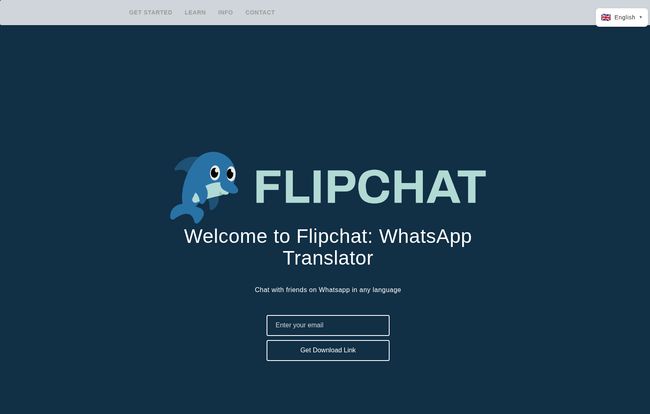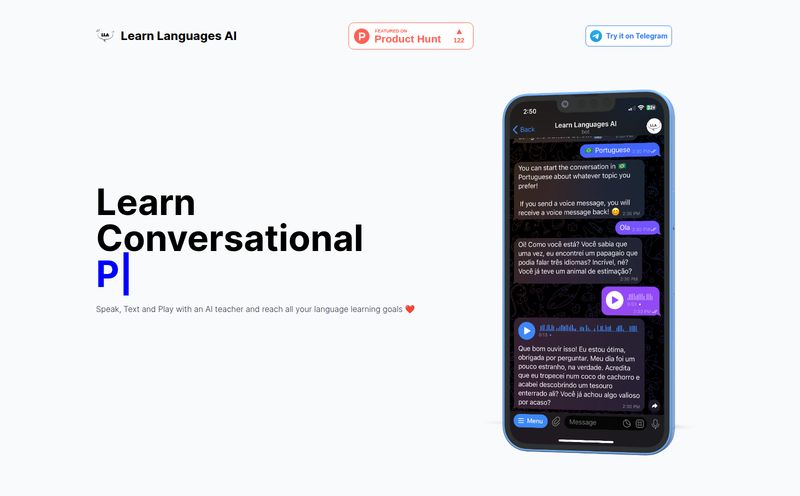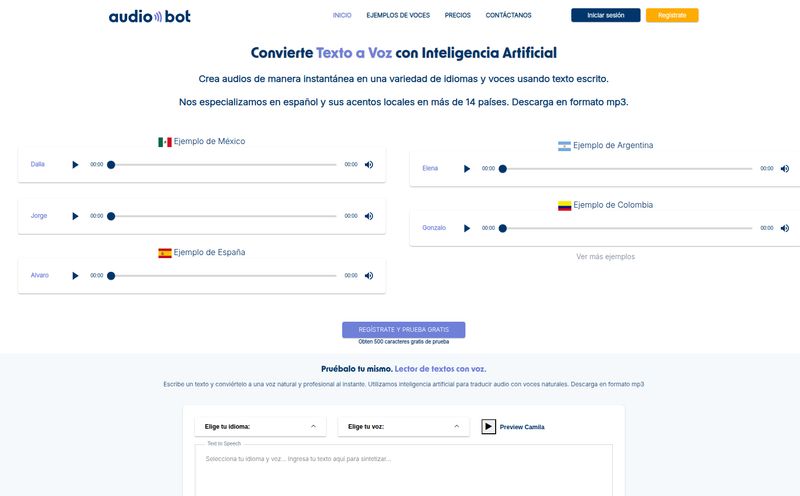If you're anything like me, your phone is a graveyard of abandoned language-learning apps. You’ve got the Duolingo owl, judging you from his little green icon. You've got Babbel, Memrise, maybe even some obscure flashcard app you downloaded at 2 AM after watching a travel documentary. The dream is always the same: become effortlessly fluent in Italian while ordering an espresso, or charm your way through a market in Seoul.
The reality? You learn to say “The boy drinks milk” in six languages but can’t for the life of you remember how to ask for the bathroom. It's a tale as old as time. The disconnect between textbook learning and real-world conversation is a chasm most of us fall into.
So when I stumbled upon a new tool called Flipchat, my inner SEO-nerd and lapsed language-learner sat up and paid attention. The promise is simple, almost deceptively so: learn a language just by chatting with your friends on WhatsApp. No separate app to open, no tedious lessons. Just... conversation. Could it really be that easy?
What in the World is Flipchat?
First off, let's clear something up. From what I can gather from their landing page, Flipchat isn't another standalone messaging app you have to convince all your friends to download. Thank goodness. We all have enough of those. Instead, it bills itself as a WhatsApp Translator. It seems to work inside the app you already use every single day.
The concept is slick. You're in your group chat, talking about weekend plans. You type a message in English. Your friend, who is learning Spanish, sees your message and with a simple tap, it translates right there in the chat. It even gives them an audio pronunciation. It’s like having a tiny, personal interpreter living in your group chat, but one that’s actively trying to teach you.

Visit Flipchat
This immediately struck me as brilliant. Why? Because it attacks the biggest problem with language learning: friction. The effort it takes to stop what you're doing, open a different app, and force yourself to study is immense. Flipchat cleverly piggybacks on a habit most of us already have—obsessively checking WhatsApp.
The Real Magic of Learning Through Conversation
The idea of learning through immersion isn't new, but achieving it without moving to another country has always been the tricky part. This is where I think Flipchat might have cracked a small part of the code.
Why Context Is Your Best Teacher
I once spent a week using an app to learn German before a trip to Berlin. I learned how to say “The bear is my uncle” and other phrases that, surprisingly, never came up. When I actually got there, all I needed was to know how to order a currywurst and ask if a shop took credit cards. The app had given me vocabulary, but no context.
Flipchat, in theory, solves this. You're not learning random, pre-programmed sentences. You're learning the words your friends actually use. You’re learning slang, inside jokes, how people really talk about making plans or what they thought of the latest Netflix show. It’s living language, not museum language. And that's a game-changer.
Turning a Daily Habit into a Learning Moment
I’m a big fan of James Clear’s book, Atomic Habits. One of his core ideas is “habit stacking”—linking a new habit to an existing one. Want to do more push-ups? Do ten after you brush your teeth. Flipchat is basically habit stacking for language learning. You already open WhatsApp 50 times a day. Now, each time you do, you have a micro-opportunity to learn something new. It lowers the barrier to entry to almost zero.
What Really Caught My Eye
Beyond the core concept, a few things in their pitch stood out to me as particularly clever. The fact that it offers both text and audio translations is huge. Seeing a word is one thing, but knowing how to pronounce it without sounding like a tourist is another. Having that audio right there is just… smart.
But the most interesting feature is the potential for multilingual group chats. Think about it. You could be learning French, your buddy in the same chat could be learning Korean, and another could be brushing up on their Portuguese. You all chat in your native tongue, and Flipchat acts as a personal Rosetta Stone for each person, translating messages into their specific target language. That creates a really unique, collaborative, and low-pressure learning environment. It makes language learning a team sport, not a solo grind.
Keeping Our Feet on the Ground: The Potential Downsides
Okay, I’m excited. But my job is to be a professional skeptic, too. As great as the idea is, I see a few hurdles Flipchat will need to clear.
The 'Your Friends Have to Use It Too' Problem
This is the big one. Even though it's a WhatsApp integration, it seems your friends still need to have Flipchat installed for the magic to happen. Getting an entire group chat to adopt a new thing can be like herding cats. There's always that one friend who refuses to download anything. The success of the app for any individual user is directly tied to their ability to get their friends on board. That's a tough dependency.
The All-Important Translation Quality
We've all had some hilarious (and sometimes disastrous) fails with automated translation. Will Flipchat be any different? The complexity of language, with its idioms, sarcasm, and cultural nuances, is notoriously difficult for AI to handle. A literal, word-for-word translation can often miss the entire point. I'm curious to see how robust their translation engine is, especially with fast-paced, slang-filled chat conversations. Its probably not going to be perfect.
It Only Works If You Actually Use It
And finally, this isn't a passive tool. You can’t just install it and expect to absorb a language through digital osmosis. It's a fantastic supplement, but fluency will still require active effort. You need to be the one tapping to translate, listening to the audio, and making a mental note of new words. It facilitates learning, it doesn’t do it for you.
The Million-Pound Question: What's the Price Tag?
As of right now, your guess is as good as mine. The Flipchat website has a big, bold “Coming Soon” button, and there's no mention of pricing anywhere. This isn't unusual for a tool in a pre-launch phase.
If I were to guess, I could see it going a few ways. A freemium model seems most likely—maybe a certain number of free translations per day with a subscription for unlimited use. Or perhaps a one-time purchase fee. Personally, I'm hoping for a generous free tier to get users hooked on the concept before asking them to open their wallets. We'll have to wait and see.
My Final Take on Flipchat (For Now)
So, where do I land? I'm cautiously optimistic. In a sea of cookie-cutter language apps, Flipchat is a genuinely fresh idea. It targets the social, contextual core of language that most other tools miss entirely. It’s an approach that feels more human.
The success will all come down to execution. How seamless is the integration? How accurate is the translation? And can they overcome the social hurdle of user adoption? I've signed up for their newsletter to get the download link the second it drops. I'll definitely be back with a hands-on review once it's live.
Frequently Asked Questions About Flipchat
Is Flipchat a separate messaging app?
No, it appears to be an integration or tool that works directly within WhatsApp. You won't have to switch to a new app to chat with your friends.
Do my friends need to have Flipchat too?
Yes, it seems that for the translation features to work, everyone in the conversation will need to have Flipchat installed. This is probably its biggest adoption hurdle.
What languages will Flipchat support?
The website doesn't specify an exact list yet, but it says you can chat in "any language." It's safe to assume it will support most major world languages at launch, powered by a modern translation engine.
Is Flipchat free to use?
The pricing model has not been announced yet, as the tool is still in a "Coming Soon" phase. It could be a subscription, a one-time purchase, or a freemium model.
How accurate can I expect the translations to be?
While likely very good for conversational phrases, automated translation can struggle with complex sentences, slang, and idioms. It's best seen as a powerful learning aid rather than a flawless, professional interpreter.
Can this replace my other language-learning apps?
I would view Flipchat as a powerful supplement to your learning, not a complete replacement. It excels at conversational, contextual learning, but you may still want a more structured tool for grammar and vocabulary drills.
The bottom line is that any tool that makes learning less like a chore and more like a natural part of your day is a winner in my book. Flipchat has the potential to do just that. It's an exciting space to watch, and I for one am eager to see if it can live up to its very clever promise.
Reference and Sources
- The official website for the tool: Flipchat.ai
- An excellent book on habit formation: Atomic Habits by James Clear



